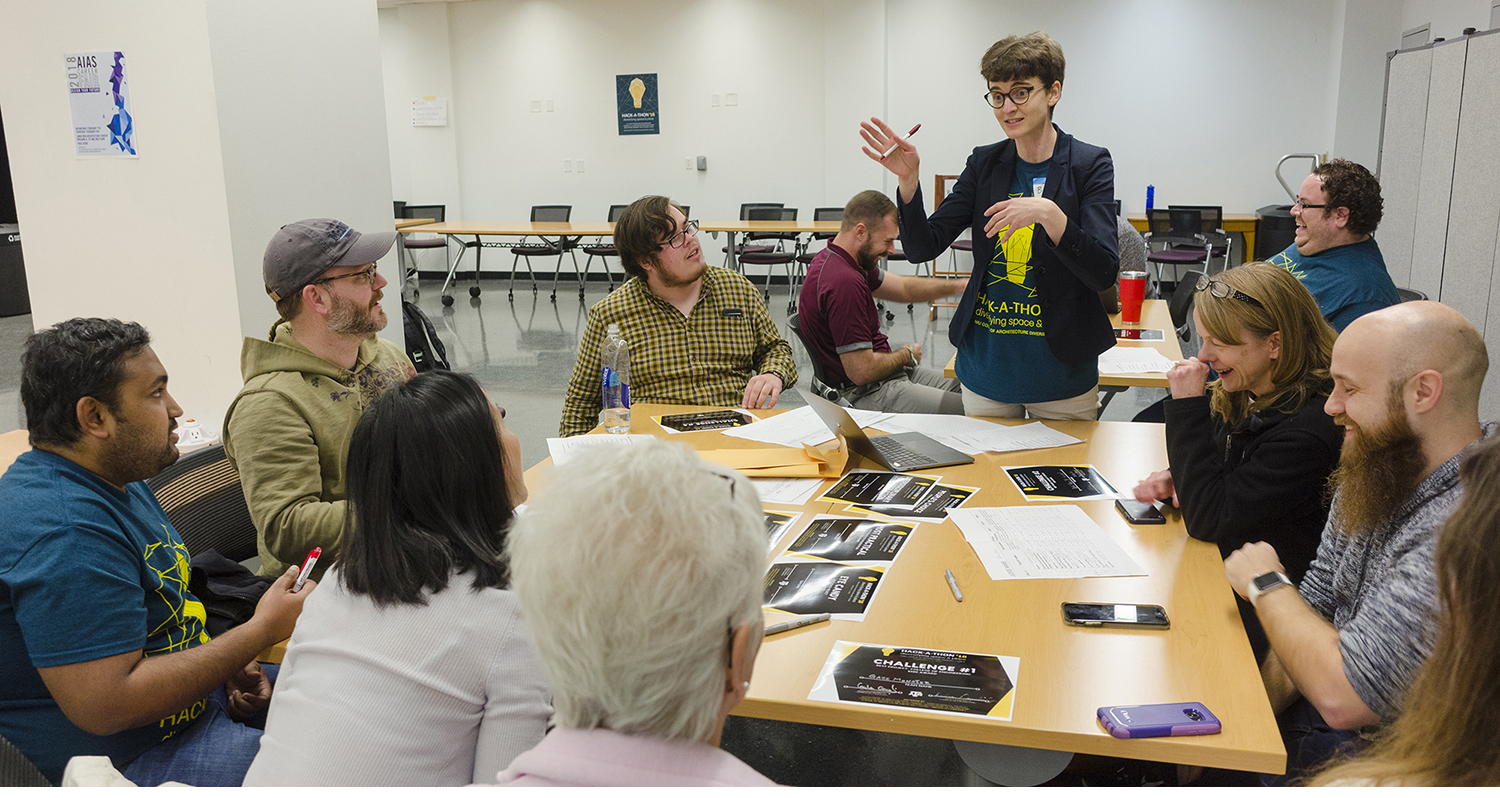Ph.D. student lauded for campus accessibility, diversity efforts

By diligently working to remove barriers for people with disabilities on the Texas A&M campus, Bara Safarova, a doctoral student in architecture, was honored at the [2018 Accountability, Climate, and Equity (ACE) Award] (http://dms.tamu.edu/diversity/ace-awards/) s, an annual Department of Multicultural Services event recognizing the importance of campus diversity.
Safarova received the “Partners in Learning Award of Excellence,” for exemplifying inclusion in education through collaboration and innovative practice.
She was recognized with fellow ACE Award honorees at an 11:30 a.m. April 11 Memorial Student Center ceremony. In addition to the awards, recipients will receive a cash gift and commemorative plaque.
The honorees were selected by a committee of current and former students, faculty and staff for awards in six categories based on nomination letters from the university community.
“Bara has searched for ways to make a positive impact on campus, create inclusion, construct a welcoming environment, educate others on issues of diversity, and devise avenues for students to create practical solutions for real life problems, or barriers, on campus and in the community,” said Marisa Suhm, assistant director of Multicultural Services and member of the College of Architecture Diversity Council.
Safarova initiated and led the College of Architecture Diversity Council’s annual Hackathon , a 24-hour event in which participants devise solutions to diversity-related campus [challenges] (https://hackathon2018-space-place.devpost.com/submissions) . The event is now in its fourth year.
An active member of the College of Architecture [Diversity Council] (http://www.arch.tamu.edu/diversity/diversity-council/) since 2013, she also co-chaired the Graduate and Professional Student Council’s Diversity and Inclusion Affairs Committee, and served on the President’s Inclusion Advisory Council, the ADA Compliance Committee, and the Council for the Built Environment.
Safarova said she was inspired to dedicate her studies and efforts toward an inclusive and accessible university campus when learning about the minimum American Disabilities Act standards as an architecture student — standards she considers inadequate.
“I listen to stories from the everyday lives of students, faculty and staff with disabilities who are trying to navigate campus,” Safarova said. “They inspire new possibilities for working with space and senses that do not enter the standard architectural discourse. When we design for the full spectrum of humanity, we all benefit.”
As a graduate research assistant for the Diversity Council, Safarova is designing a multidisciplinary epidemiological approach to mitigate the human and animal health burden of Chagas disease in colonias on the Texas-Mexico border.
“Bara inspires other students and pushes me and others in the Diversity Council to take more responsibility in our jobs, while bringing along enthusiasm and positive energy,” said Cecilia Giusti, associate dean for outreach and diversity at the College of Architecture.
Safarova holds a Bachelor of Science in Architecture from East London University and a Royal Institute of British Architects Diploma in Architecture from London Metropolitan University.
Sarah Wilson
swilson@arch.tamu.edu
Tags
- architecture
- building a better texas
- college culture
- colonias
- diversity
- feature
- graduate work
- honors
- outreach
Related Posts
Votes sought for student project in Texas colonias
Colonias work earns progress award for regional director

Public interest design projects recognized
Colonias Program marks 20th year

Ph.D. student-led talks informing valley fiscal plans
Follow Us
Facebook Twitter Vimeo Youtube Flickr RSS
Recent Posts

Planning prof heads study of disaster housing aid

A message from the dean

Former student remembered as expert planner

Leading educator named new head of Architecture Dept.





_thumbnail_small.png)
